-
According to my 3-year-old, my Aaron Neville impression is spot-on perfect, even to those who have never heard of Aaron Neville.
-
5 weeks from a year of sending my PEN weekly. It’s the most important step I’ve taken creatively, leading to so many things, connecting me with old friends and new friends, wild stuff: pen.zachphillips.blog/p/zachs-pen-47…
This one has a bunch of panoramic photos in it.
-
That thing when your office is in the Joseph R. Biden Jr. Railroad Station in Wilmington so you back a Kickstarter for a split-flap train board because it’s perfect and then it arrives 4 years later when your office is no longer inside the Joseph R. Biden Jr. Railroad Station.
-
Me with 8 hours 11 minutes of sleep: Life is full of possibilities. Proud to know you all.
7 hours 37 minutes: No one knows what the future holds but I trust we can make it there, together.
6 hours 56 minutes: We aren’t going to make it. I’m moments away from violence.
-
Youtube Timestamps and Looping in RoamJS
David Vargas (@dvargas92495), the creator of RoamJS, has done it again. We can now do a whole lot more with YouTube embeds inside of @RoamResearch: Timestamps and looping sections! Here’s a quick demo.
I’m sure Roamans will enjoy the ability to take notes at specific timestamps in a video or YouTube-uploaded podcast, but to me that’s not the most game-changing part…
Roam/YouTube just became the best music practice notebook ever.
You can collect songs and lessons and pick very specific in- and out-points and then loop them, slowed down if you want.
This makes Roam the best tool in existence for breaking a song into measures and really zeroing in on the sections that are giving you trouble (practice).
I also love the timestamps for the ability to collect scenes and shots from movies. It could also be a great tool for B-roll collection for documentary.
Language/dialect-learning, any kind of action or skill that would benefit from repetition.
I’m already building some fingerstyle guitar practice sessions in Roam, and it’s amazing to be able to add another part of my life that’s important to me into this system, in a no-compromise way. In fact, there has never been a practice tool this good that is this easy to use.
One plug for David at RoamJS. It is shameful that every member of the Roam community hasn’t thrown hundred dollar bills at this man. He is making life better for all of us every day.
Head over to Roam and contribute/buy something, foreal.
This is also where you get this Video plugin (for free) so you can do these incredibly useful things with YouTube videos inside Roam.
-
Zettelkasten for Fiction
A quick little Zettelkasten fancy… Let us whisper of a dream…
What if bottom-up writing/notetaking/thinking (same thing) works just as well, if not better, for fiction as for non-fiction?
Why do stories need to be conceived top-down? Who says that’s a rule? Stories are more freeform than arguments even. Aren’t they?
What should you do when that moment of inspiration strikes? That character, that single scene, that feeling, that image… What if you just wrote it down for fun, not even knowing if it ever might make its way into a story?
Would you capture more of these moments?
What if your Zettelkasten conversation partner could become your dialogue partner for workshopping scenes?
What if doing this were fun, not “regardless of whether it was for some ultimate purpose,” but for no purpose at all?
What if your high concepts for movies could be captured not just as crude, ill-conceived instructions for how to build a hit movie, but as thematic threads that weave together with other themes you’ve shown interest in over time?
Then they begin to demand supporting characters…
What if there were fleeting notes made up only of images, from which sketches of scenes could be explored just for fun? Why does writing need to be in letters of the alphabet?
Why couldn’t a reference note simply be an argument you overheard between lovers on a street corner?
What are the “Literature Notes” for that? What was the couple really trying say to one another, in my own words…?
If the bottom-up Zettelkasten is, as it appears to be, a perfect invitation to explore more deeply and more playfully without any need to know an end, a goal, a neat little purpose, could it extend the same invitation to story?
Let us whisper of a dream.
-
The Nervousness/Excitement Trick
I don’t remember where I learned this, but there’s a trick that sometimes works when you’re super nervous/anxious about something you have to do: Change the self-talk from “I’m so nervous/scared/anxious” to “I’m so jazzed/excited/tingly.”
This probably doesn’t work for people with serious anxiety problems, and it only sometimes works for me, but what’s neat about it is that the physical sensations are really quite similar between nervous and excited. It isn’t a crazy stretch to convince the mind of the switch.
I personally don’t have problems just before or in the moment of a high-stakes, bear-could-eat-me event. Usually the feeling is more like “Geez, why did I compromise my week (or month) dreading this?”
It’s all the days before where I have this anxiety and dread, and often about something I really like and want to do, by the way.
So this is the strategy I’m employing in the days before a stressful thing: “I’m excited for this,” “I’m ready for this,” and maybe with a little splash of “I’m pretty good at this.” The tingly energy that’s already here might very well be excitement. This may not even be a lie.
-
The Filmomat automatic film processing machine.
-
Pop Lullaby List
Wendell (my 1-year-old) has had a 104 fever today, and though it looks like it’s broken (he’s sweating), it took a lot of songs to get him to sleep tonight.
Here are some pop songs I like to sing as lullabies to my kids, with links to every music service, where possible.
“Take On Me” by a-ha (the sad version)
“Everything’s Alright” from Jesus Christ Superstar (without the screaming Judas parts)
“Time After Time” by Cyndi Lauper
“A Summer Song” by Chad and Jeremy
“God Must Have Spent A Little More Time On You” by *NSYNC (fight me)
“Dream a Little Dream of Me” by Mama Cass
“Rhythm of the Rain” by The Cascades
“Don’t Be Shy” By Cat Stevens (seems like a lot of Cat Stevens, there’s a reason for that)
“God Only Knows” by The Beach Boys
“A Teenager in Love” by Dion & The Belmonts
“Happy Together” by The Turtles
“The 59th Street Bridge Song (Feelin’ Groovy)” by Simon & Garfunkel
I’d love to know yours. Not recalling many of mine. I guess I can add to the list later. Thanks for happy vibes for the small Wendell.
-
Fires and the Perception of Grossness
In my old age I’ve become pretty intolerant of anything dirty. Like, if any one of an embarrassingly long list of things touches my hands, I will be hyper conscious of my unclean hands until I wash them.
Except if I’m camping. Or grilling. Basically, if there’s fire involved.
Really, all I have to do is start building a fire, I don’t even need to light it yet, and I forget all about whatever grossness might be getting on my hands. And let’s be clear, this is not about germs, it’s about grossness.
Something about a crackling fire, even if it’s in a charcoal grill as it was today, just kicks me into a totally different mode as a human animal. The smell of the fire, the soot on my hands, the smoke in my face.
I’m not gonna say it’s “primal” because that would be too easy.
A fire takes me out of my indoor air-conditioned sweat-wicking comfy-ass life and puts me somewhere else. In the weather. Getting warm. Cooking some food.
I have the same reaction to bugs now as I do to gross things. When I was a kid I could pick up all kinds of bugs and be fascinated by them. Now it’s just butterflies and ladybugs. Anything else I want to kill with fire just for getting close to me. What happened?
Why did I develop this crazy obsession with being clean? Particularly when no one is actually clean…
I’m not doing exposure therapy so don’t ask. Four years of diapers haven’t fixed me. Eating my kids’ half-bitten-and-drooled-on food off the ground hasn’t fixed me. I still feel like I really need to wash my hands afterwards. Dafuq is wrong with me?
-
Abandoned Projects
Came across a shot of my desk 10+ years ago at the coworking space where I started out. I was “working on a documentary” that I never ended up making. There are a lot of these projects in my cabinets. I’m interested in not feeling guilty about this kind of thing anymore.
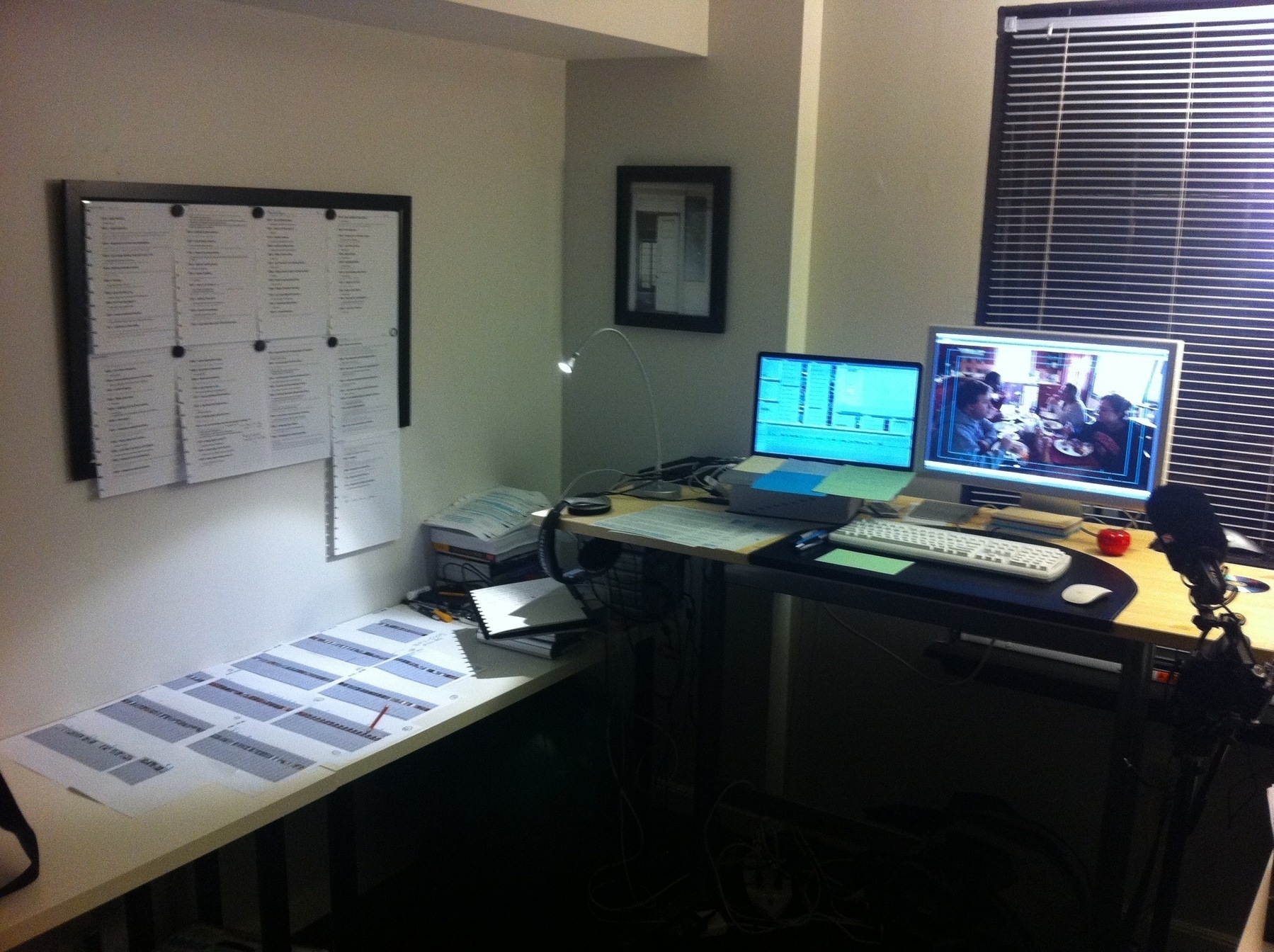
I was never actually interested in doing most of the projects. To be more clear, I was very interested in some small aspect—usually in love with the idea of the project. But I never considered that 91-94% of the project I had neither the skills nor the inclination to pursue.
If I had forced myself to follow through on even one of most of these projects, it may have meant ruin for me. Truly. But as one after the other has found its way into the dusty failfile over the years, I’ve just built up substantial guilt, shame, disgust with myself.
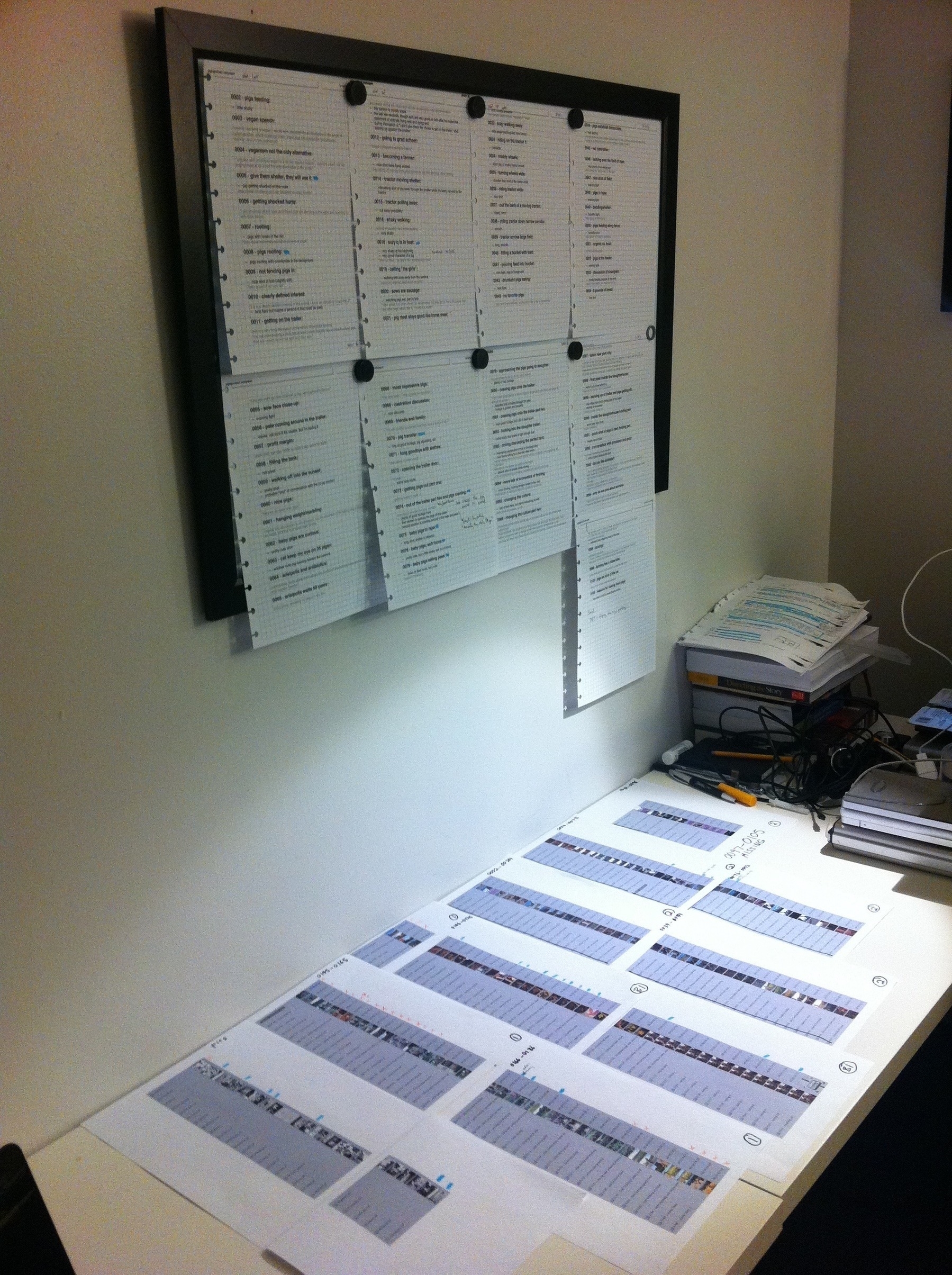
One thing I realize now is that I should have been doing smaller things. Every idea I ever come up with seems to appear fully-formed at massive scale. The smallest ideas are feature-length films, often period films. Those are the small ones.
So yeah, I often say “I haven’t done anything I said I wanted to do.” That’s true when viewed narrowly. The great thing that has come into my life in the past years in the idea of doing little things, which I now do daily, and they give me great satisfaction.
I just wish I could feel the same way about all the scenes and screenplays that I wrote over the years, and all the sketches and designs and JavaScript proofs-of-concept and the reams and reams of prose that exploded from sudden inspiration.
If I’m totally honest, I still have a subtle obsession, a glimmer of hope, that all those old things may come back to help me create something someday. But my true intention is to settle for making peace with them all as they are.
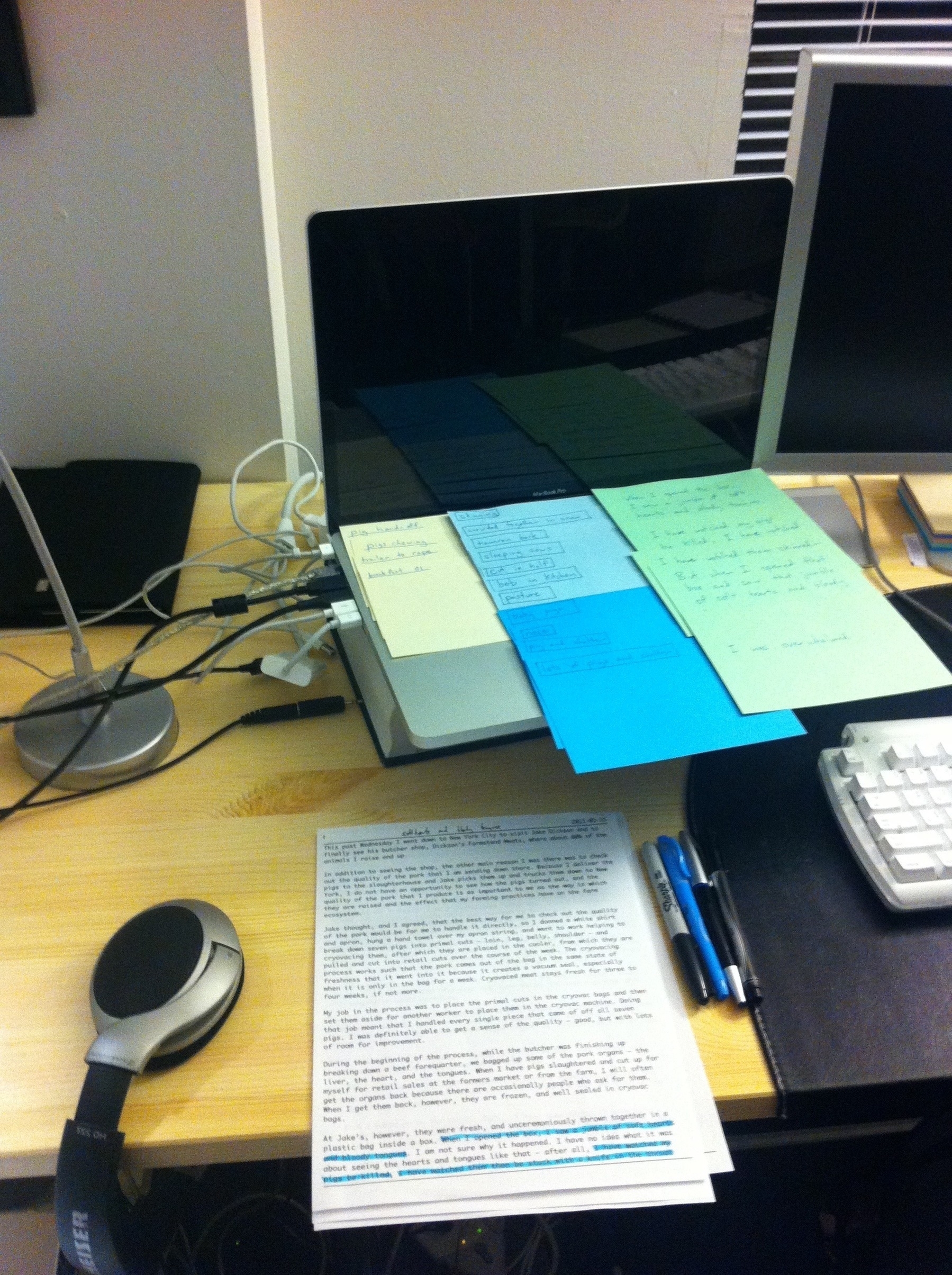
Those were all the little things I made back then, and I made a lot of them. I just never showed them to anyone. And I never finished what they were pointing toward. And of course I didn’t.
-
Top-down vs. Bottom-up
This culture likes to turn everything into top-down structures.
A top-down structure has its place but it will always be against the grain and therefore unhelpful and unsustainable outside of extreme moderation.
A bottom-up structure is with the grain.
This principle applies to every process of management, strategy, design, organizing, thinking, learning, everything we do. When you try to enforce a structure from the top down first, you will almost certainly fail.
If you don’t fail, you will likely be spawning externalities you are completely unaware of and causing collateral damage because you did not let the base and all other parts of the structure inform how it should work.
A top-down structure is “Let them eat cake.”
It’s an aloof, blind confidence that one understands the full complexity of something as large as a society or as “small” as a company without actually hearing from/deeply collaborating with each of the roles and component parts.
At the end of a process when constraints are at their peak, when everything must coalesce into This Outcome by 5pm, by this time is when top-down must have earned the trust to take over, direct the troops, put the pieces in place, take the hill, deliver the package, run the play.
If that trust has not yet been earned, top-down can be brute-forced, but eventually everything will crumble and everyone will die.
A bottom-up structure is what naturally occurs when you’re open and curious. It’s how things work. It’s how we learn.
A bottom-up structure should be the standard at all times until the moment there’s a decision, an end.
Then do it, quickly, and get back to listening.
-
Take Everything Bad, Make It Good
Drug addicts (who for reasons use the term “alcoholic” primarily/interchangeably) are usually defined as people who can’t control their drug use. “They start out to have a good time and then it’s a shit show.”
The words “to have a good time” are doing a lot of work here.
This is the trope: The alcoholic’s great obsession is that he will one day be able to control and enjoy some nice, fun drinks and drugs.
This is basically a lie because the word “enjoy” is poorly defined.
I don’t talk about it a lot, but one important part of my story (and identity) is that I’ve been sober for 18+ years. Addicts aren’t a monolith but we sure do have opinions about addicts. This one is mine.
We’ll get back to this concept of “enjoyment” in a moment.
Now, many of my fellow addicts will stop me here to say something like “I never wanted to drink/drug in moderation, I always wanted to get drunk.” Okay, sure, fine, that’s one reason why this trope is wrong, but I think there’s a reason that gets closer to the source.
To a person, addicts’ stories of falling in love with booze and drugs (we all fell in love) includes this honeymoon period, however brief, where these substances made them feel “good.” Made them feel “okay… finally.”
They describe this experience in many different ways.
Let me sum up the collective stories: “Alcohol/drugs took everything in my life, feelings, fears, worries, doubts, inadequacies, relationships, and my whole world… It took everything that was BAD, and it made it GOOD.”
I guess you could call that “enjoyment”? “A good time”?
This is the thing about addicts: We’re asking a lot of the drug, because it worked once. It really worked. It took everything that was bad in the universe, and it made it good. And then it stopped doing that.
Drugs weren’t fun once and then they stopped being fun… Drugs were the mystical elixir of the gods once and at some point they stopped washing away all the evils of the world in a single flurry of magic.
The great obsession of the alcoholic isn’t that some day he will be able to “enjoy” drinking. The great obsession is that there exists a magical thing that can take all this pain and longing and unworthiness and make it all go away in an instant.
We’ve seen it. We just had it.
-
Fleeting Note Formats
One of the implications of Beau Hann’s take on Fleeting Notes that I’m super excited about (and I’m jumping ahead and Beau may disagree) is a meaningful and referenceable space for unstructured thoughts in different formats, like handwriting, pictures, and recordings.
The science indicates that writing notes by hand is beneficial, and I will offer anecdotally that this is true for slowing down the brain, which feels amazing and generates insights of higher quality more reliably.
Also, it sure is nice to get away from screens for a minute.
My attempts to go analog have ultimately succumbed to the compromise that structure and searchability are more important than the many good reasons I’d rather read comfortably with pen (actual pen) in hand.
But Fleeting Notes have no preference to format.
Because Fleeting Notes are fully divergent, encouraging me to explore any direction my mind goes, there’s no reason they can’t include pictures of index cards or pages in a notebook or a picture of a door knob that spontaneously arises and feels right in that moment.
If I were just capturing all these formats and stuffing them together into a folder with some kind of category name on it, I would be taking a filing system that’s already tedious and dubiously helpful and adding materials to it that are even harder to find than typed notes.
But with Fleeting Notes, allowing an inspiration or sparkly noticing to prompt any number of divergent threads, knowing that later I will diverge further and then surface from them some meaning, connecting them to my larger map…
I can do whatever I want in the Fleeting Notes!
And here’s the thing: I’m not building a Zettelkasten because I want to have The Best, Correct, Pressure-Tested Thoughts. No. I’m looking forward to the way those high-level thoughts can lead me back down to the stuff in my Fleeting Notes.
I like that stuff.
The Zettelkasten for me represents less a refinement > refinement > cream-rising-to-the-top model of getting to the Most High Quality Thinking™. No, most of my best ideas arise spontaneously when I am most unserious and playful.
What rises to the top of a Zettelkasten is a structure that can lead me back down to something valuable at precisely the right moment.
That is the holy of holies for me. At least right now.
-
Tom's Studio
My friend Tom was looking for a place to set up a serious recording studio, and I think he’s found the coolest possible space: An 1800s Lutheran Church.

He makes music under the moniker Thantaphobe, and he’s got great songs, some gnarly analog synthesizers, cool microphones, and a WHOLE. GODDAMN. CHURCH.
When we walked into the sanctuary he said “This is the reverb room.”
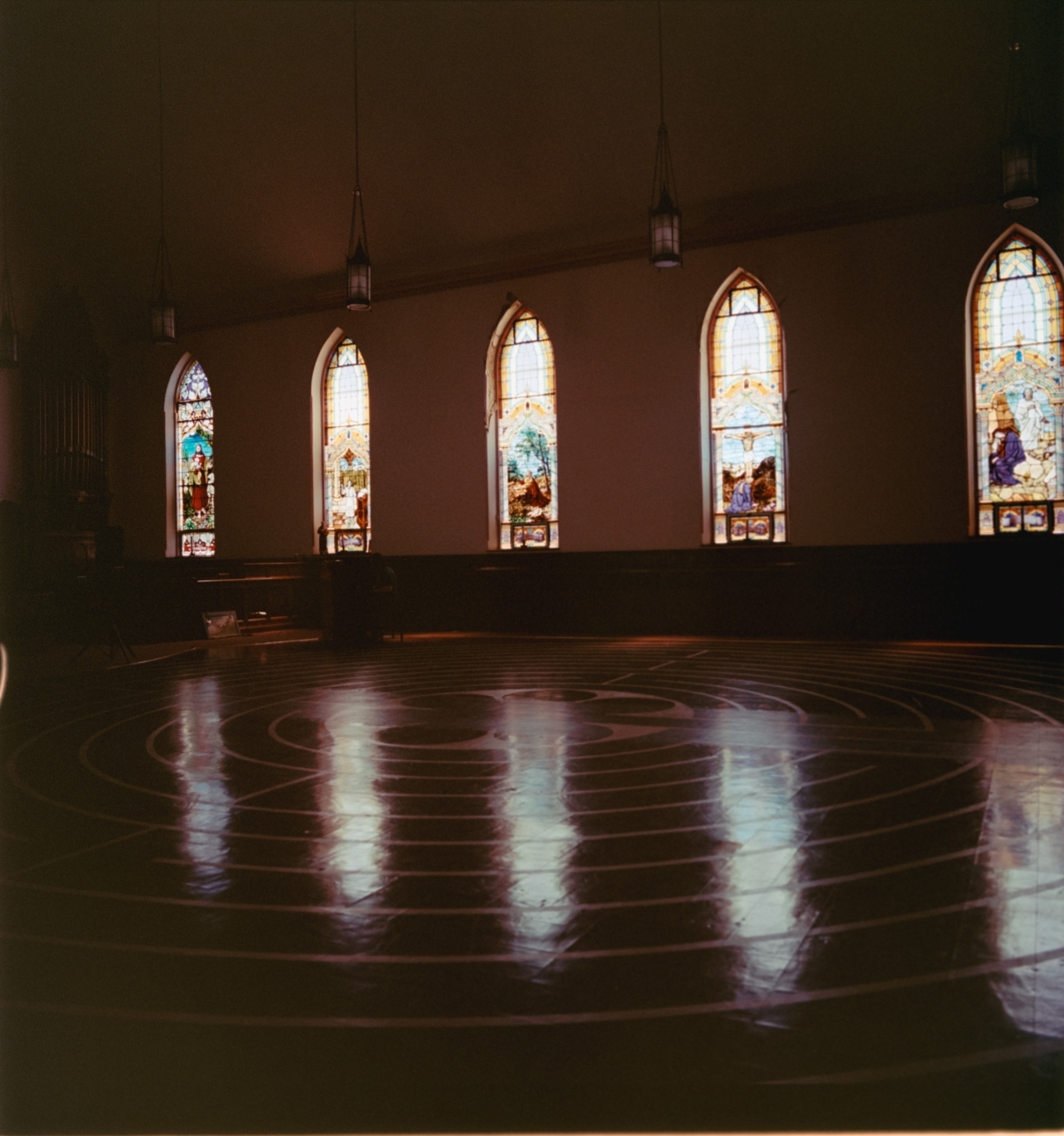
(By the way, it’s hard to shoot photos indoors and I haven’t pushed film yet so sorry these are so dark and moody, though I’m not saying that doesn’t fit some of Tom’s vibes).
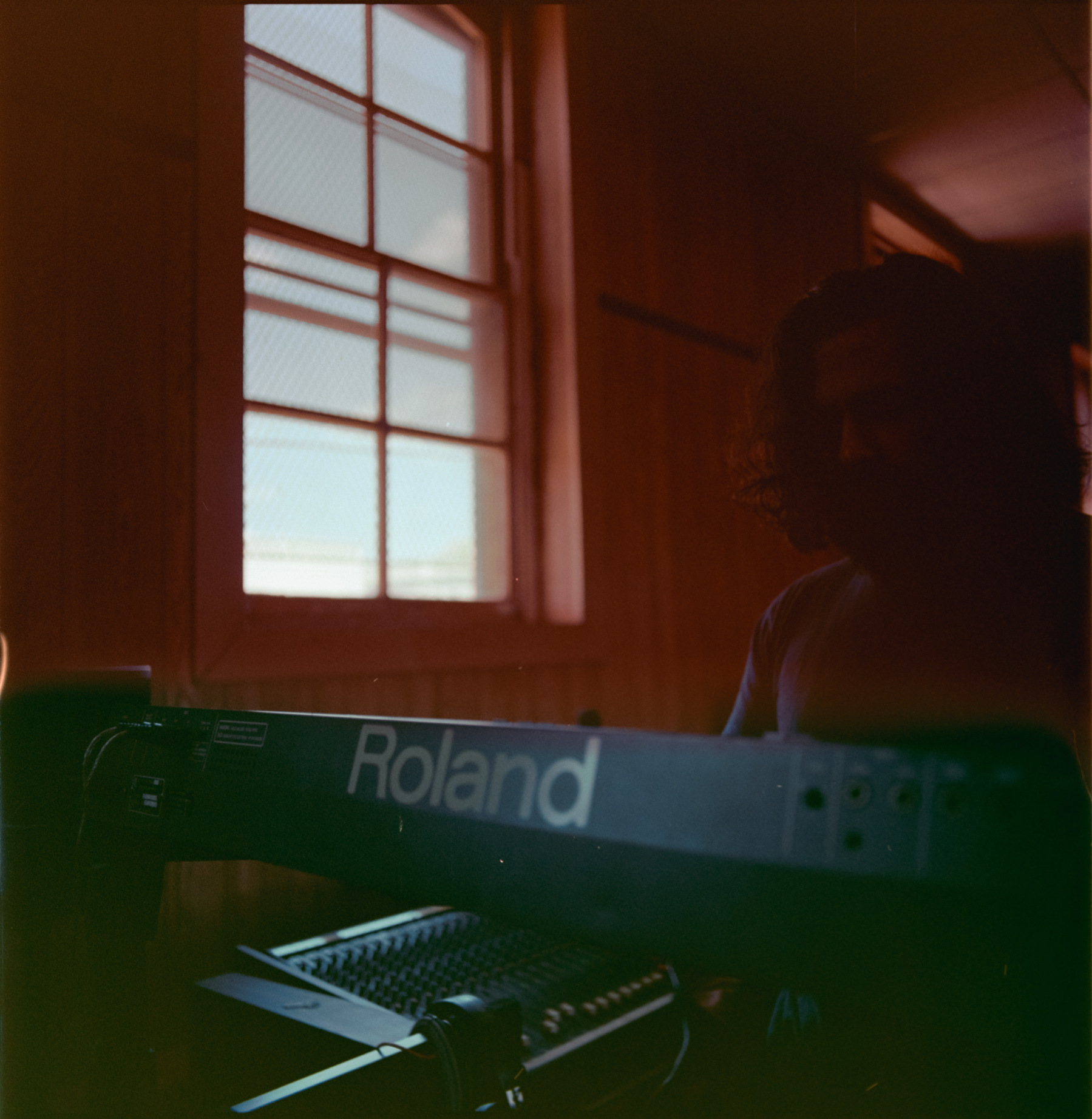
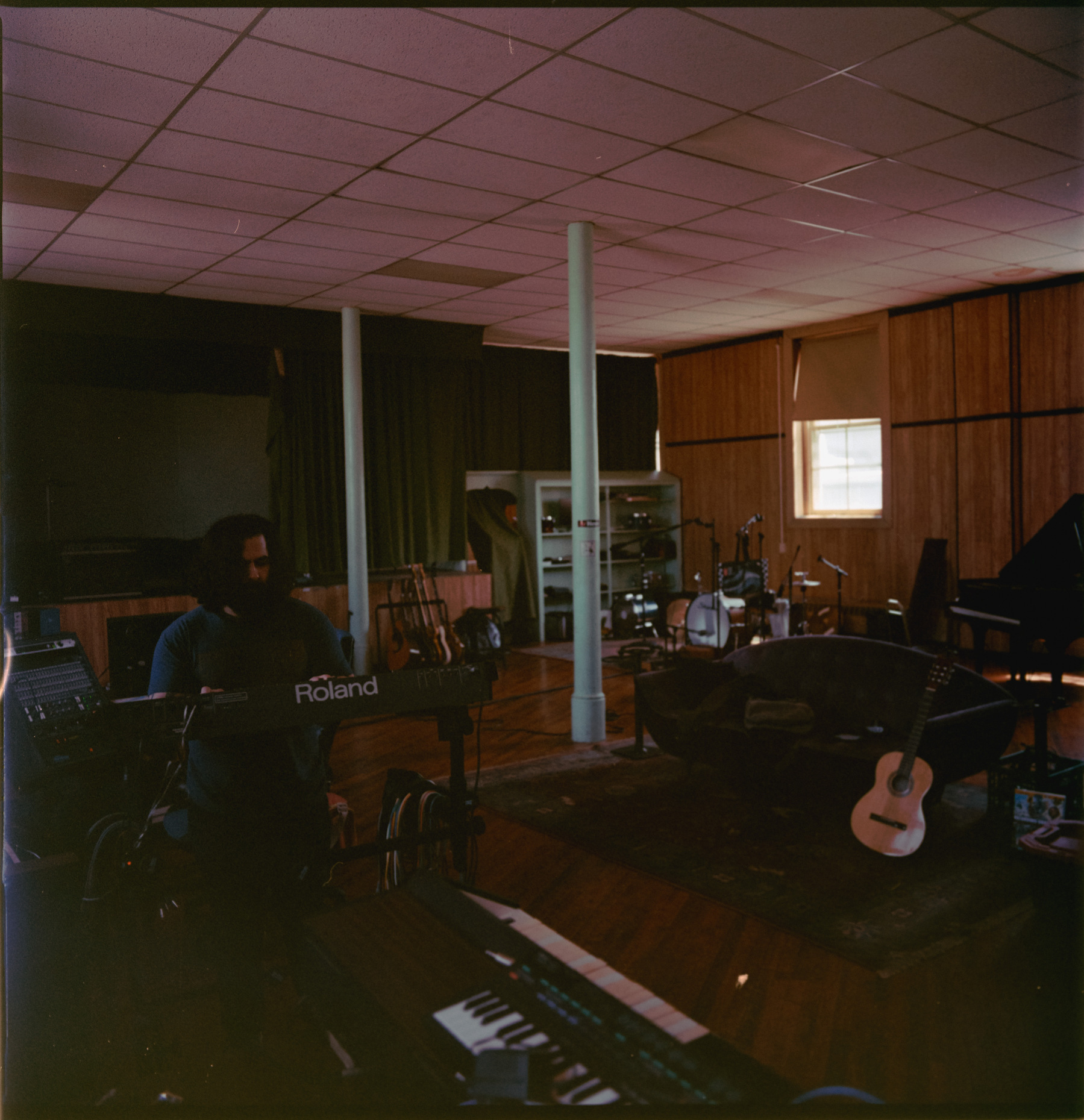
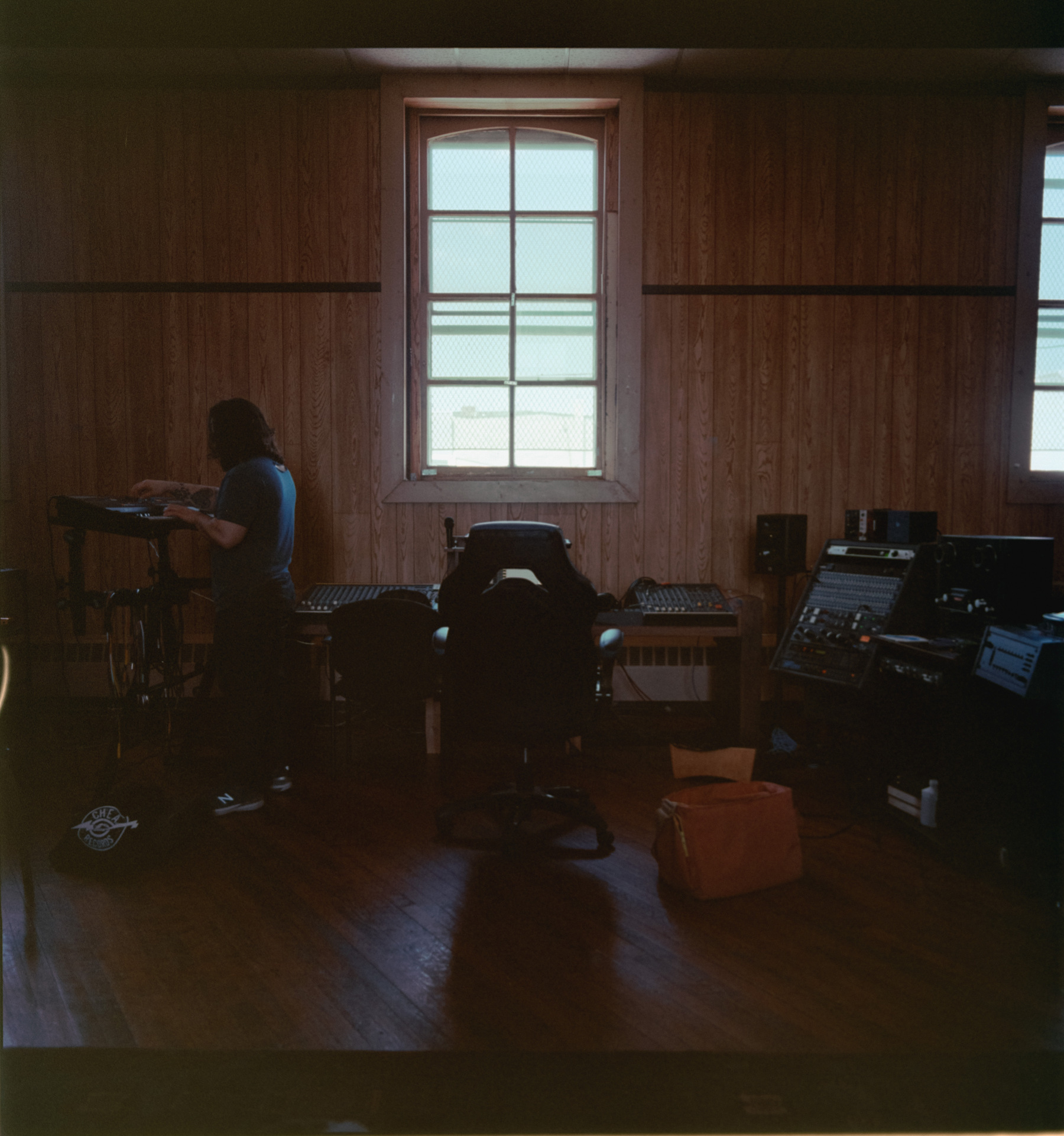
In case you were wondering, yes, there’s also a 100-year-old organ the size of a house, in there, but it’s currently not functioning.
All in good time.
Nothing is cooler than when a space that has been lying fallow for years finds an ideal use. I’m very glad this church found Tom.
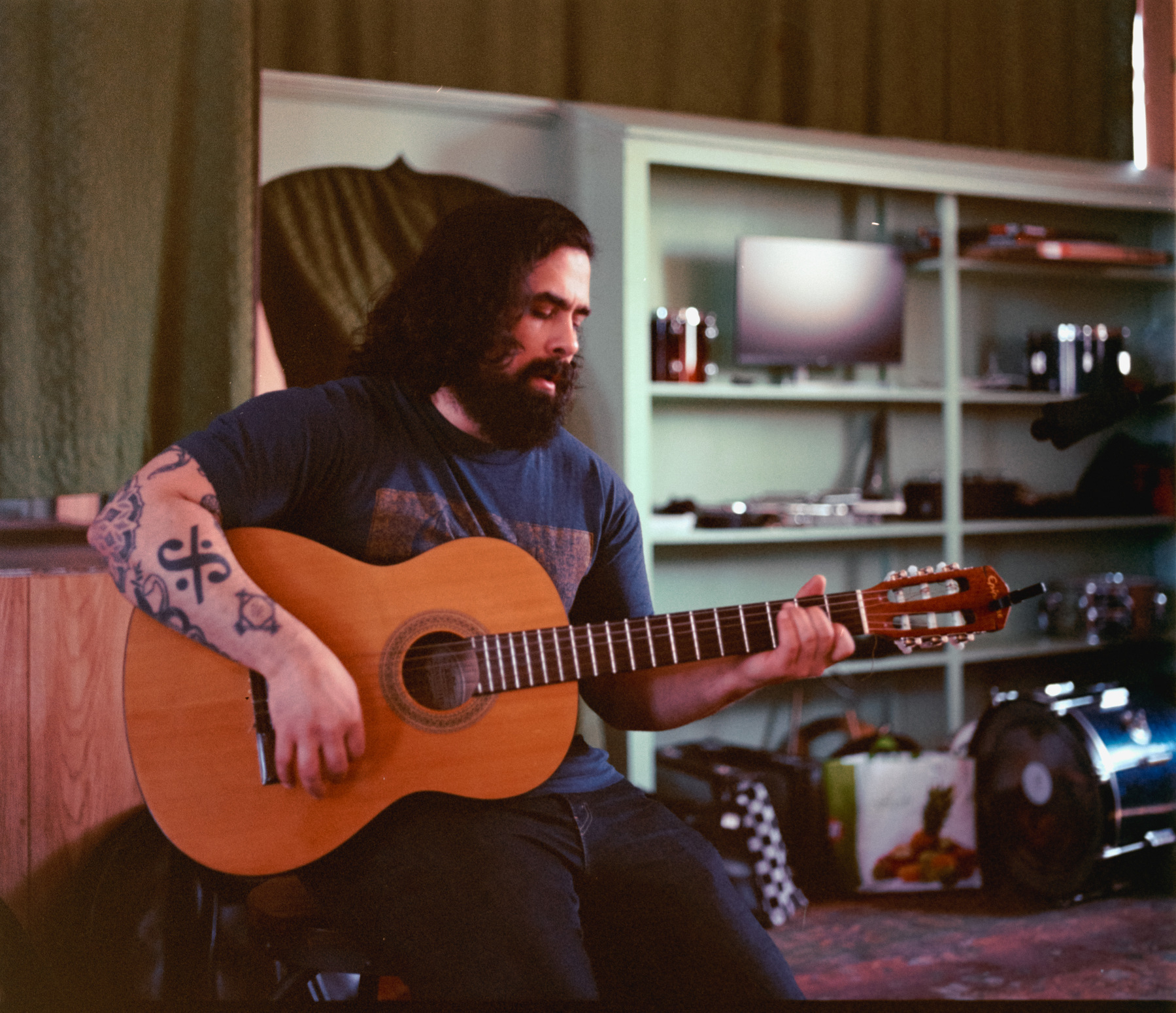
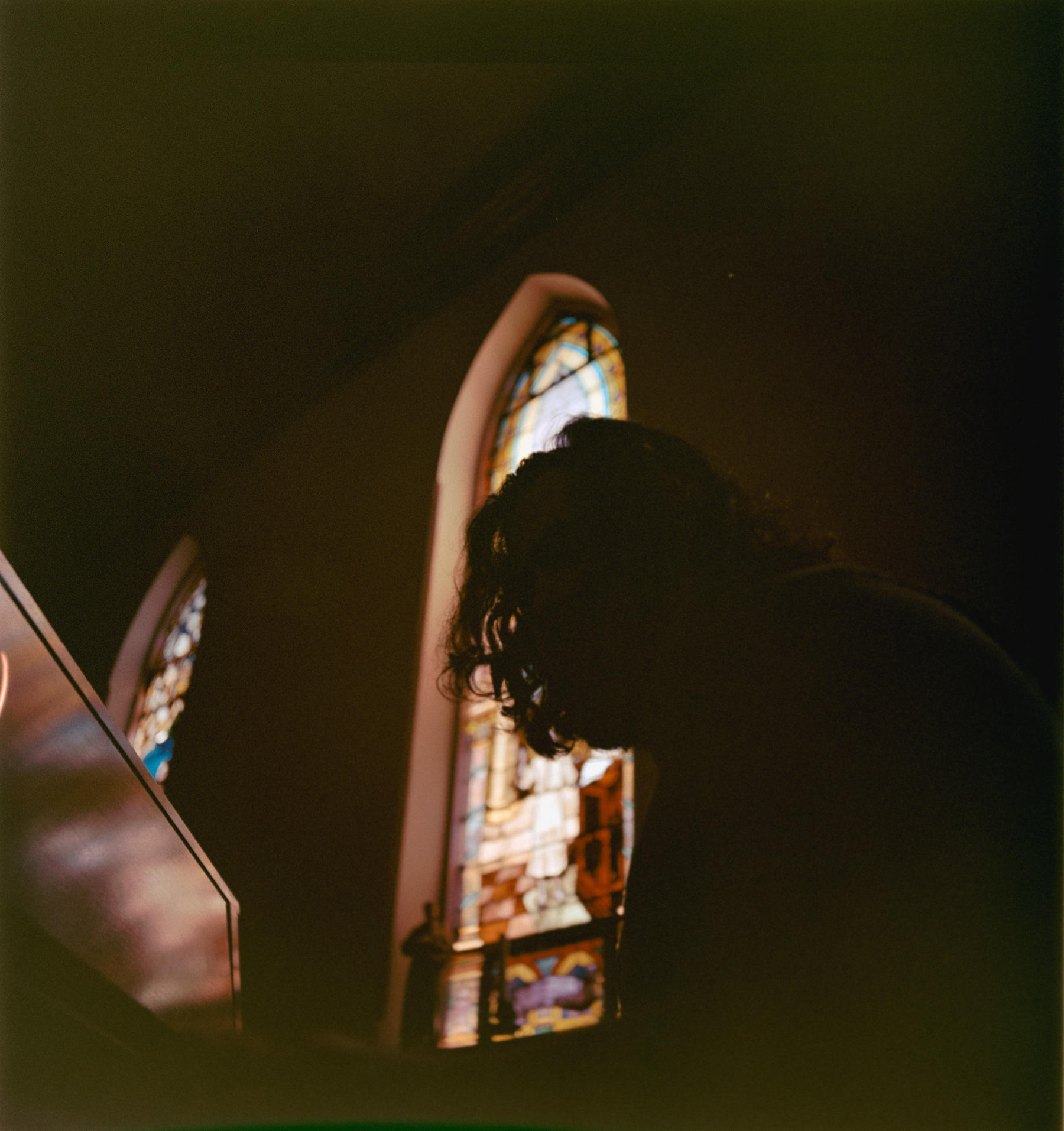
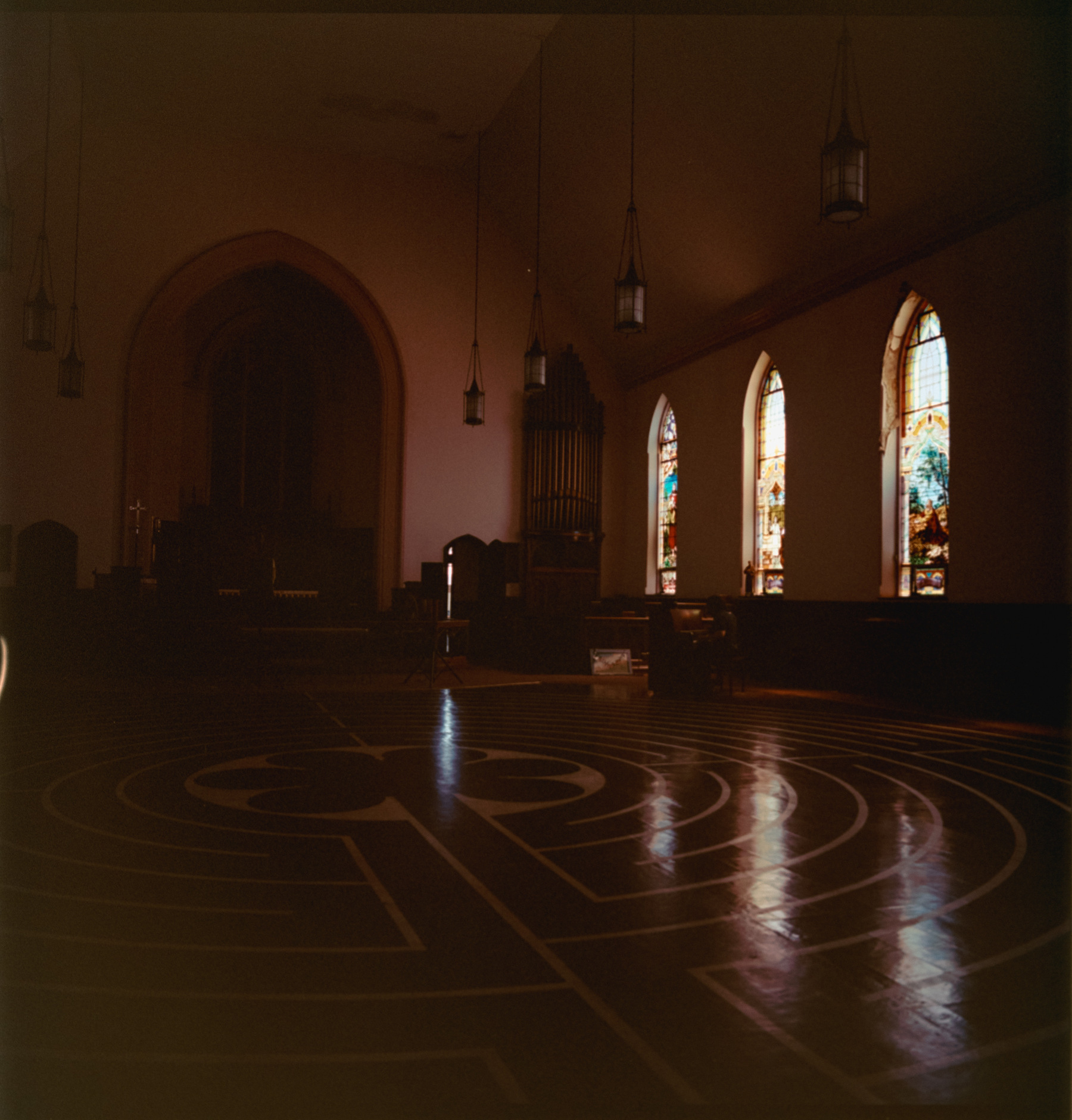
-
Non-Coercive Perseverance
One of the only things that has felt incongruous with the non-coercive self-discipline regime I’ve fallen in love with over the past year (because it has worked incredibly well) is my past experience “pushing through” total overwhelm—taking the next step.
This type of advice, “When you’re going through hell, keep going” is fundamentally great, sound advice, but it feels out of line with non-coercion. It feels like “Make yourself do it even though you’re feeling discouraged.”
I’m happy to report I have not found this to be the case, but it’s all about being aware of the framing.
When I’m bound up, discouraged, paralyzed with fear and anxiety, taking one more easy step is the most non-coercive measure I can take.
When I’m in that stormy cage of peril and the bears are coming to eat me, that storm itself is full of coercive, self-loathing messages: “You fucked up again, you’re no good, you really need to get your shit together, you BETTER DO THE RIGHT THING NEXT.”
In those moments, none of those messages are helpful at all, and they represent the death spiral that I need to escape from. Adding another pushypushpush message on top of that roaring fire doesn’t help me.
“Take one small, easy (easy) step forward.”
“Call a friend. Have a cry. Journal about it. Take a small walk. Hug your kid. Do one, small, easy (very easy) step.” I believe this is the same non-coercive technique. It isn’t misaligned at all with rejecting notions of Work Harder™ and Try Harder™.
I also believe that this scales up and down to all kinds of human suffering.
I’m not saying that it’s always possible. Sometimes the suffering is just too much. I’m also not saying that it always works even when it is possible…
But one actually small, actually easy step is the most humane, non-forcing advice that applies to extreme periods of overwhelm.
Just watch out for “C’mon, you can’t even take one, small, easy step?!” That’s the wrong guy.
-
This woman I shot some slow motion iPhone video of a few years ago didn’t know she was about to become the sweetest mommy of all time. We love you, Allison!
-
Processing Film At Home
I’ve fallen in love with photography again thanks to shooting film, but there are some practical things that I’ve needed to implement (still easier for me than shooting digital, by the way).
One of these practical things is that I can now develop my own film.
By the way, developing black and white film at home is easy. They even have monobaths now where it only takes a few minutes and one chemical.
Color is more complicated…
What makes color complicated is that the chemicals need to be at a precise temperature. People do this with sous-vide implements and setting up a whole chemistry lab in their kitchen or bathroom…
I’m at a point in my life (and my wife’s life) where I can’t do that.
When you’re shooting as much film as I am, the cost adds up quickly. But the cost is only half of the problem.
The waiting… is the hardest part.
Too soon?
Now you say “But with film, the waiting is half the fun!”
That’s true… But I don’t want to wait on someone else’s schedule.
And the anticipation is actually so much better when you do it yourself and reveal those negatives.
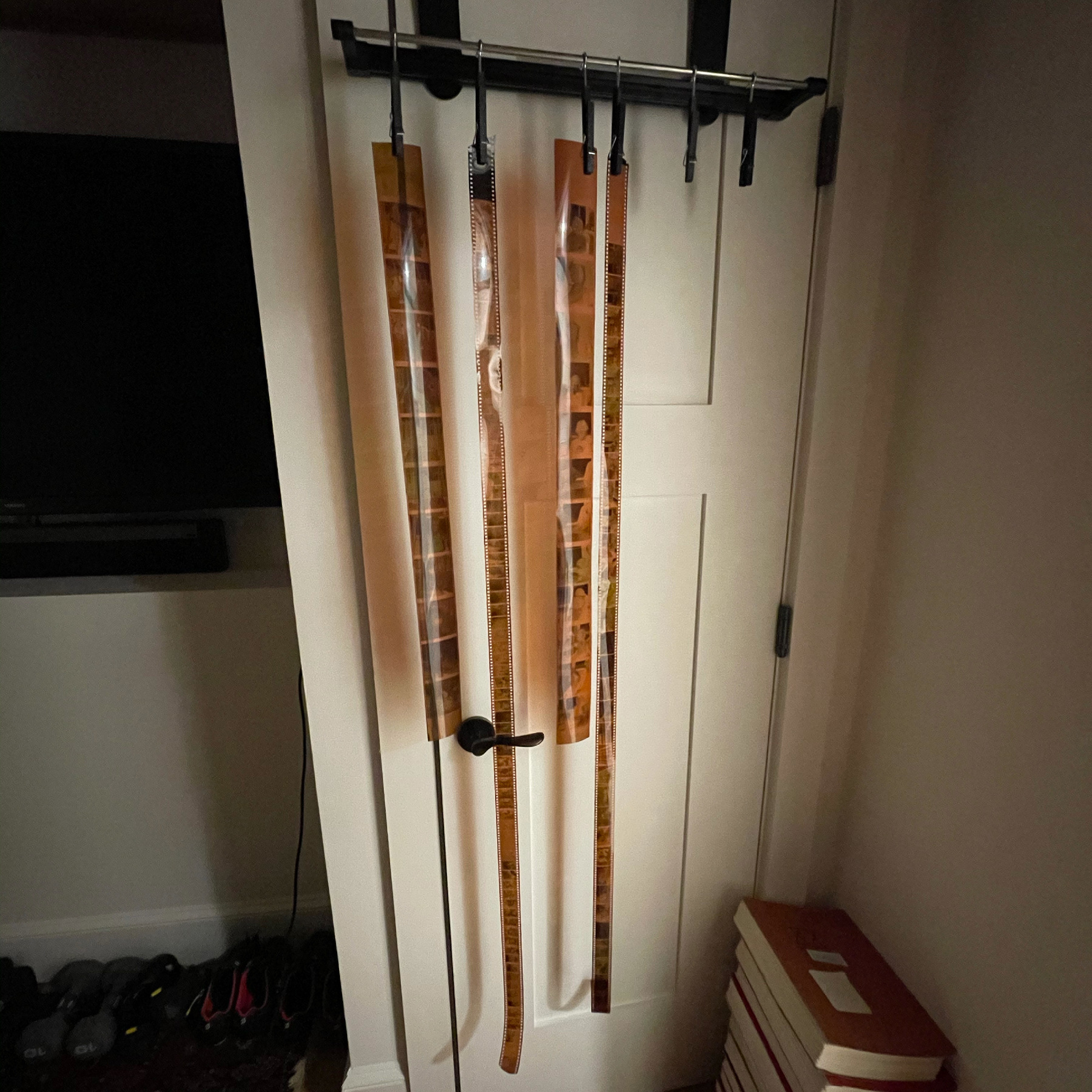
So in order to do this at home without taking over our kitchen or leaving any smelly hazardous chemicals around my house, I got this amazing device called the Filmomat, which looks like a piece of hifi audio gear (but doesn’t cost quite as much).
This device was created by a German engineering student who got mad one day that a lab messed up his film so he built the best and most beautiful automatic home film processor in the world.
I love stories like that. That’s how most great things come to be.
The Filmomat cleans itself, lets me run 4 rolls at a time (or 2 35mm and 2 medium format), and I can do color, black and white, or slide film (haven’t done slide film yet).
It’s not like this takes no work. You still have to go in the dark to spool your film and get it in the tank and you need to mix up chemicals to use, but this machine makes it possible for me to do this at home.
As an added benefit, I get to offer friends and family the gift of reconnecting with photography on film as I have, and I can process and scan for them.
I know this won’t happen, but I hope that everyone who ever loved or fancied or liked photography will one day pull their grandma’s old Pentax out of the attic (it still works, guys) and shoot a roll of film and feel that magic.
At least I can help loved ones who will.
-
Profile Photos
I’m generally not proud of my work (not being melancholy, I think it’s fine, some of it may even be okay-bordering-on-good, it’s just my standards are high), but there is one thing that makes me proud: 50+ people have used a photo I took as their profile picture on Facebook.
I HATE having my picture taken, and most people do. To be able to give a person a picture of them that they’re even mildly happy with, let alone happy enough to put as the avatar that represents them online, that feels like I’ve done a real service.
About half are people I know, half are people I don’t. I used to shoot professionally and I shot a lot of weddings, and photos I took there would pop up as a random guest’s profile photo.
Those are some of the only moments where I could unequivocally say “I did a good job!”
Much of my psyche is characterized by a sense that I’m not doing enough, contributing enough… but every time I’d get that notification (thanks, whatever nerd was working in the belly of the beast at Facebook) I’d be like:
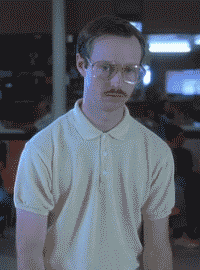
I was reminded of this by a friend who let me take his picture when we met at the playground while my kids were running around. He said the obligatory “I hate pictures of me” but when he saw the result, he liked it.
He may not make it his profile photo, but that’s enough.
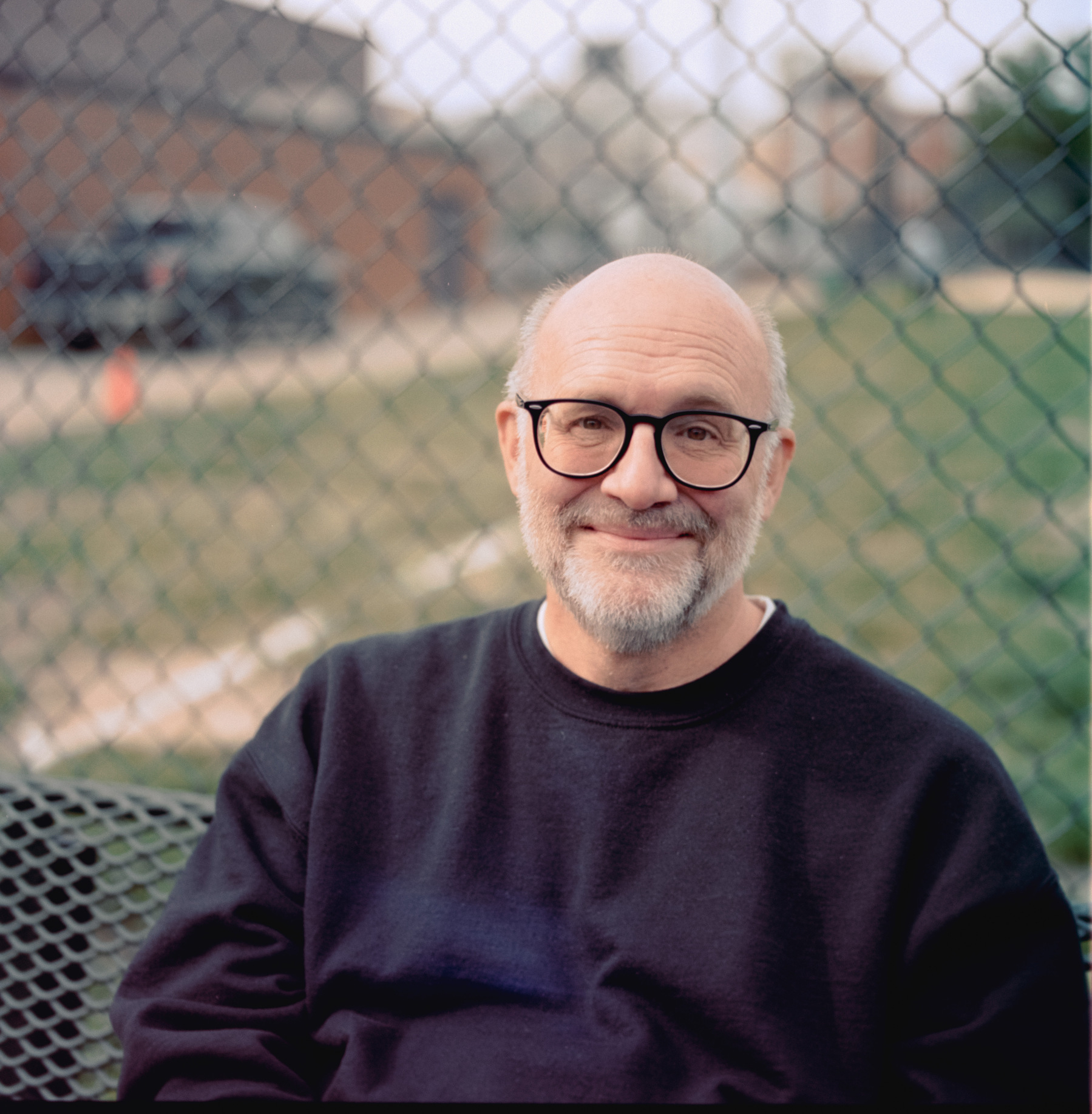
-
Short-term Incentives Are Better
I have developed an unhelpful habit of eating before bed. At the end of a long day, often a stressful one, with two babies and already at a sleep deficit, that moment after the kids have gone to bed and I won’t be working anymore feels like it calls for something.
Using longterm incentives to correct this: “I need to lose weight,” “I need to worry about my heart,” “I want to be quicker on the basketball court,” just leads me down a path of leaning on willpower, battling myself, and 68% of the time, giving in.
At day’s end, I’m fresh out of willpower, and it would be fun to eat for a minute.
Willpower is bunk. Every single piece of advice to use willpower for anything real or important is thoughtless garbagespeak.
Here’s a sophisticated decoder I’ve developed that you are free to use: Code: (any words/advice that boil down to using willpower)
Translation: “So, errrrrm, have you tried just NOT doing that?”
So long-term incentives don’t work because willpower is still involved, willpower is a limited resource, no one really has any more of it than anyone else, and a person’s capacity for willpower cannot be appreciably cultivated or increased.
The good news is that the short-term incentive to avoid eating before bed is superior to anything long-term: My sleep, tonight, will be improved if I have tea instead of, say, finishing all the kids’ chicken fingers and tater tots.
Not a little improved. Radically transformed.
If I skip this nighttime snack, I will get to bed earlier, my body won’t radiate heat overnight, and I’ll wake up rested and happy (and with comfortable digestion).
For a little more evidence, I have metrics from my Oura ring that let me know just how much better my sleep was.
Sleep improves everything in my life, starting with my perception of life’s difficulties. Without enough sleep, life feels IMPOSSIBLE, like maybe we should give up on the human experiment. When I do have enough sleep, life feels possible, and sometimes even fun and exciting.
My short-term incentive for better sleep is perfectly synced with my long-term incentive for a healthier body and mind, but the short-term is the only one that really matters. The long-term incentives have never helped me over any significant period. Not once, not ever.
This is why any and all advice to “try harder” should be thrown in the trash forever. I have tried to my fullest capacity of trying. I promise: It doesn’t mean shit, it doesn’t do shit, it isn’t worth shit. It’s a burnout, whack-a-mole, failed design for living.
The shorter-term the incentive, the better, all the way down to “This is exactly what I want to be doing in this moment.” This approach produces happier, healthier people, a better world, and much more valuable (and prolific) results that any “hard work” ever could.
-
Bicycle Awareness
I took my first bike ride through the city in a while last night. I liked it so much, today I biked up to Fishtown to visit a friend’s studio.
There is absolutely nothing like riding a bike through a busy city. I love it.
There’s something about the type of awareness you need to have when you’re on a bicycle. You need to be aware of everything, from potholes to the width of an opening to traffic and people.
The residual awareness from paying this much attention makes everything else shimmer.
Driving is very (frighteningly) easy to do without being aware of much of anything. Just autopilot.
With walking, you have the opportunity to be deeply aware of the world around you in an intimate way, but you don’t have to do it.
The bicycle forces you to pay attention.
Because you’re moving so fast, you get to see so much in such vividness, but always moving on to the next place. Even the smells are plentiful but momentary.
There are many other reasons that bicycles are amazing, but this type of awareness may be the bicycle’s greatest feature.
Philadelphia, just about every part of it, is so flavorful. So much character and soul in every neighborhood, and you really get a sense of it when you bicycle through town.
It helps a lot that most of the town is flat and they’ve done an excellent job adding bike lanes all around town.
There’s always a little bit of danger, of course, but that’s most of what provides this awareness. That’s a big topic for another day.
-
Low Key Reaching Out
I think that, on some level, these daily posts I’ve been writing for the past 135 days and the weekly Personal Email Newsletter (PEN) that I’ve been sending for 40 weeks are just a low key way of reaching out.
Believe it or not, I really don’t want to bother anybody. A very high priority in my life is not to bother anyone or God forbid ask them to do anything.
But let’s be real, this culture’s getting lonely out here and sometimes I just need to reach out.
Hey.
By publishing something small every day, I’ve “invited” other people to say hey back, but only if they want to. The last thing I want to do is bother anybody. I know they’re busy. They don’t need another source of obligation or guilt. I’m not giving them that.
The result of daily publishing is that I’ve met new friends, reconnected with past acquaintances, exchanged loving notes with family and old friends, I mean… It’s been amazing.
Publishing stuff frequently does a lot of different things. I’m finding that any single one of them makes the whole thing worth it.
The fact that publishing is a way of low key reaching out might be the best feature of all.
For the record, I’m generally not a fan of using “low key” to describe everything but it seems to apply well here. By saying hey to everyone at once, and doing it every single day, I’m offering the lowest pressure invitation to say hey back.
And it works!
This last year has been hard. And it’s been harder because it’s been lonely. I miss people (truthfully I missed people before this year, this year has just accentuated it).
This is all I’m saying: I’m down to say hey to y’all whenever, but also I have zero expectations beyond maybe one person reading this in 6 months and saying hey, and that alone makes it all worth it.
It’s perfect, in fact.
-
My three-year-old requested Star Wars tonight, reminding ME what day it is.
Huge win.
After the movie (VII) we engaged in a lightsaber battle and she froze me with The Force and threw me of a cliff.
“You’re dead now, badguy.”
-
I Was Wrong
Admitting you were wrong is harder the longer you’ve been wrong. This is true even if you don’t have an ego thing about it. There can be a deep regret that comes along with accepting you were very, stubbornly wrong for a very long time.
This regret is worse if your wrongness has negatively affected others. People you care about.
Probably my least favorite feeling comes from knowing I’ve let people down. This is even worse when I did so out of hubris.
It’s still 100% worth it to fully accept you were wrong. Every breach in the Dam of Certainty loosens up all other ideas that have hardened, often invisibly.
“What else could I be totally wrong about?”
Decisive action and humble hesitation feels like a tricky balancing act. One might logically conclude that cultivating humility and openness to being wrong would compromise decisiveness.
The reality appears to be the opposite.
I find that the more aware I am that I might be wrong, the quicker and more confidently I can make decisions.
Even the most arrogant person can’t help but smell the dust of vague risk. Even when their eyes are fully closed.
-
Film Editing Endurance
Though I barely edit film now (hope to get back to it in a little bit), it was my primary job for a decade.
While editing does require physical and mental endurance (and patience), the muscle it really strengthens is a kind of emotional endurance.
Film, in my opinion, is the least-mediated medium. Relative to other artforms, film plugs directly into the human emotion port. It’s instantaneous and interpretation is automatic.
The experience of editing film is the experience of playing back emotions over and over again, and the trick is being open so that you can stay freshly attuned to how your analog amygdala is reacting.
This is, not harder, but different than it would seem.
Just as your eyes adjust and recalibrate to the world through color-tinted sunglasses or ski goggles in mere seconds, your emotional response will adapt to a visual story, especially when the emotions are overwhelming in some way (probably what you’re going for).
As in real life, the best way to increase emotional capacity is counterintuitive: The strategy is to fully feel the emotions, not to suppress them.
Emotional fatigue results from suppressing emotions, not from feeling them.
So when you’re editing a moment on film that’s choking you up, or making you feel scared or excited or proud, the absolute best way to keep yourself in it, calibrated, improving, is to fully feel it.
You may feel foolish crying over and over again when you play a moment 100 times, but that’s the job.
And it’s a beautiful job.